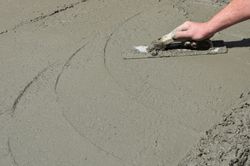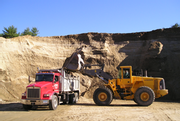4 Common Causes of Concrete Cracks

Concrete cracks occur for a variety of reasons that are important to understand. Knowing common causes will ensure you take the proper steps to prevent them and get the most from the concrete supplied by your aggregate distributor. Here are a few reasons why this surface may crack.
What Causes Concrete to Crack?
1. Moisture
Over time, water can weaken surfaces. When it penetrates concrete, it can cause cracking. The issue will worsen as water seeps in further, so have the crack filled right away. A repair paste is often enough to resolve cracks. Applying a sealcoat to the surface will prevent moisture damage in the future.
2. Freeze/Thaw Cycles
 Extreme temperatures and precipitation can damage concrete. Frozen soil can lift, and when it thaws and settles, the concrete on top of it may shift and crack. The issue worsens when frozen ice melts and seeps into these cracks because it will erode the concrete from the inside out.
Extreme temperatures and precipitation can damage concrete. Frozen soil can lift, and when it thaws and settles, the concrete on top of it may shift and crack. The issue worsens when frozen ice melts and seeps into these cracks because it will erode the concrete from the inside out.
3. Overload
When you visit an aggregate distributor, make sure you purchase concrete rated for the load that will be placed on it. Too much weight can weaken and eventually crack the surface.
Concrete is rated in pounds per square inch (PSI). This refers to the weight need to crush a square inch of concrete. As a reference, home driveways usually require 3000-4000 PSI. Home foundations require a PSI between 2500-3000.
4. Premature Drying
Many people crack their concrete before they ever get to enjoy the surface. Concrete will develop thin, spiderweb-like cracks if it dries too quickly. While these aren’t a structural issue, they can be unsightly. If you want to avoid these cracks, make sure to use a quality concrete mix.
If you’re looking for an aggregate distributor in Connecticut, turn to Manchester Aggregate Supply. For over 40 years, homeowners and construction professionals have counted on them for high-quality products. Browse their ready-mix concrete on their website or call (860) 643-5578 to place an order.
About the Business
Have a question? Ask the experts!
Send your question

